Comprehension skills Reading Fiction Worksheets for Ages 4-6
5 filtered results
-
From - To
Foster essential reading comprehension skills in young learners with our engaging fiction worksheets for ages 4-6. Designed to captivate beginning readers, these printable worksheets from Kids Academy introduce fundamental concepts through beloved stories. Children will improve understanding of characters, settings, and events while answering questions that stimulate critical thinking. Perfect for classroom or at-home learning, these resources help cultivate a love for reading, delightful imagination, and a solid foundation in literacy. Start the journey today to develop a lifelong appreciation for stories and enhanced comprehension skills! Visit Kids Academy for more resources and watch your child’s reading skills soar.
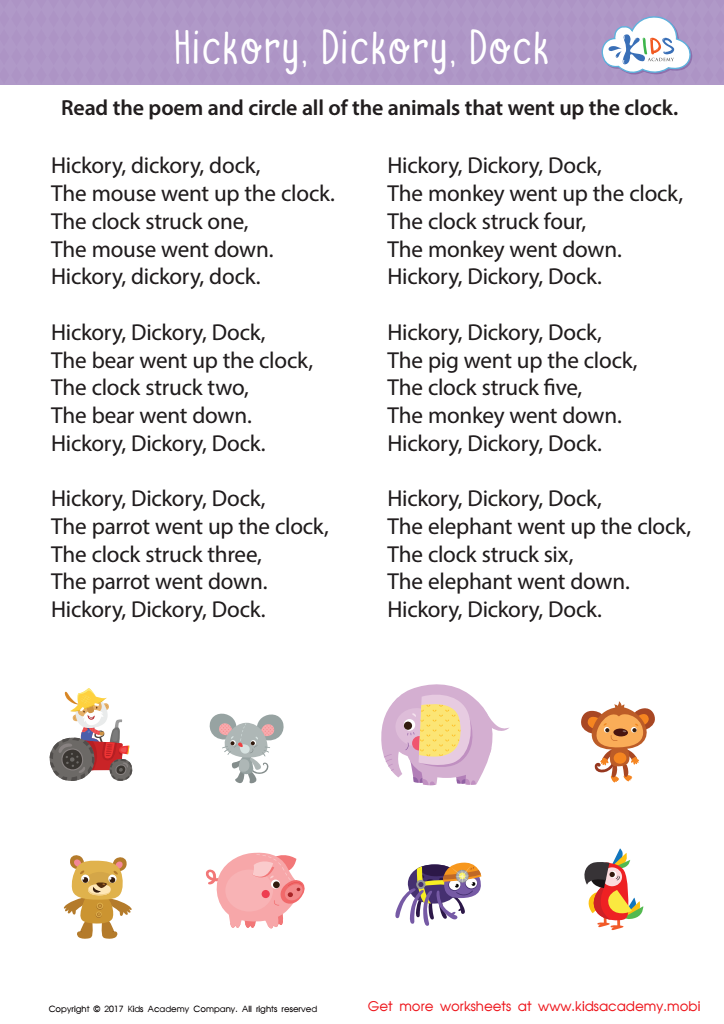

Hickory Dickory Dock Sequencing Worksheet
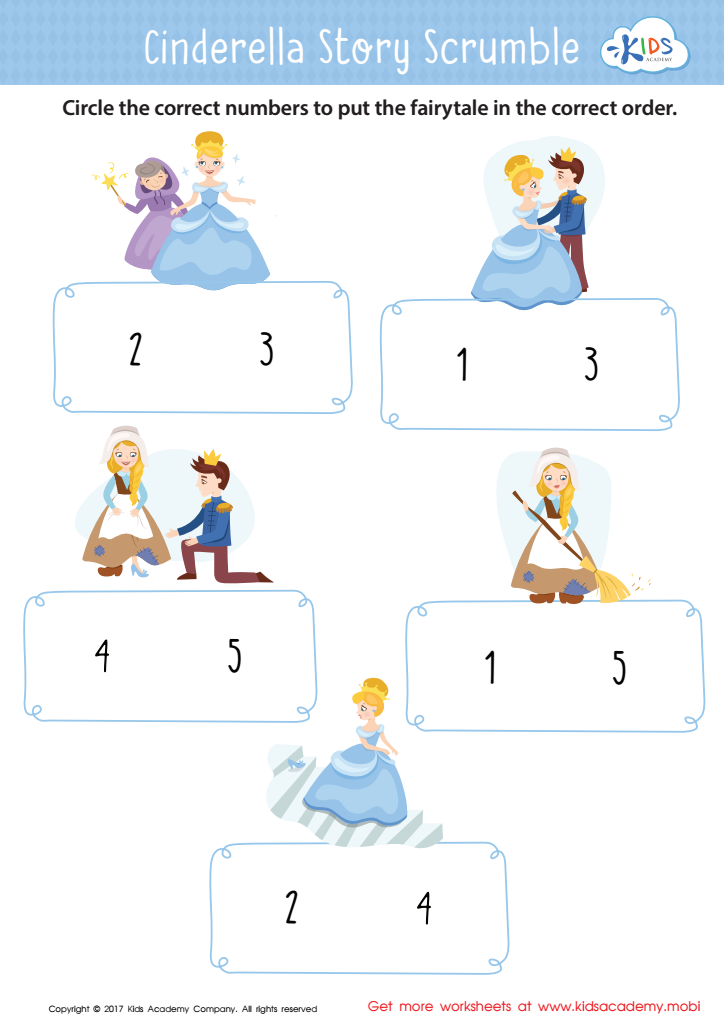

Cinderella Story Sequencing Worksheet
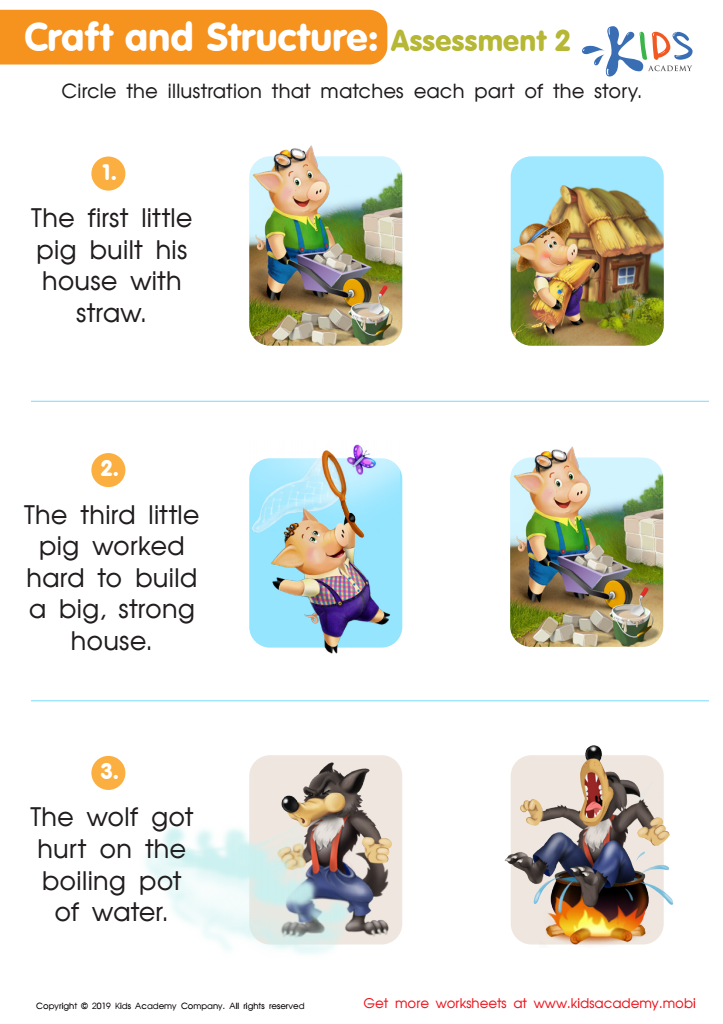

Craft and Structure: Assessment 2 Worksheet 2
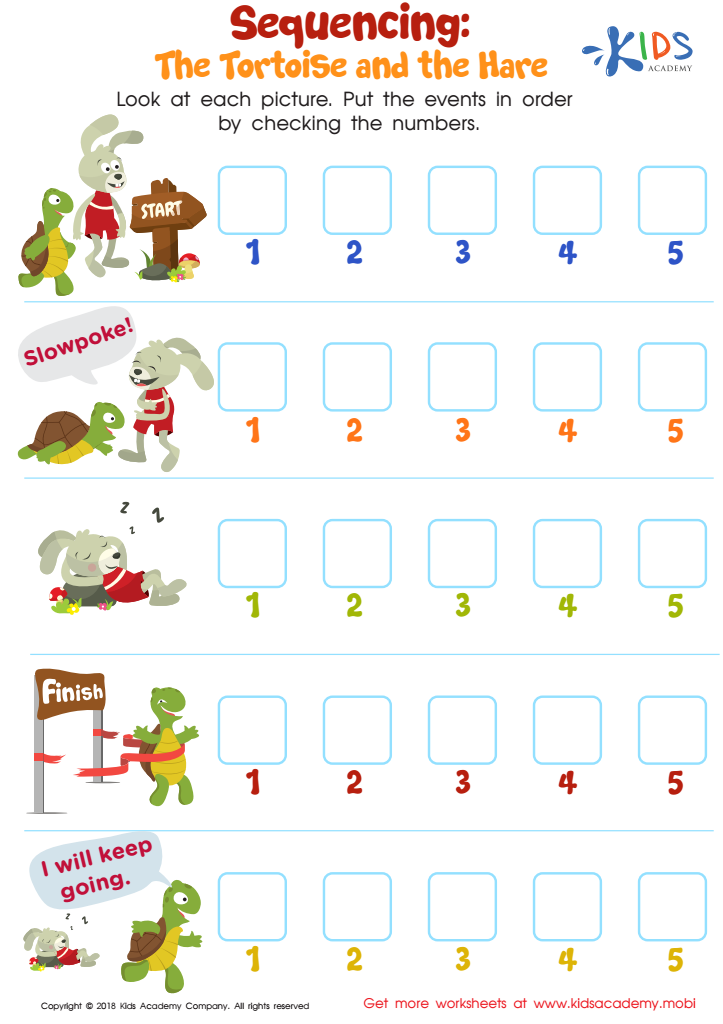

Sequencing: The Tortoise and the Hare Worksheet
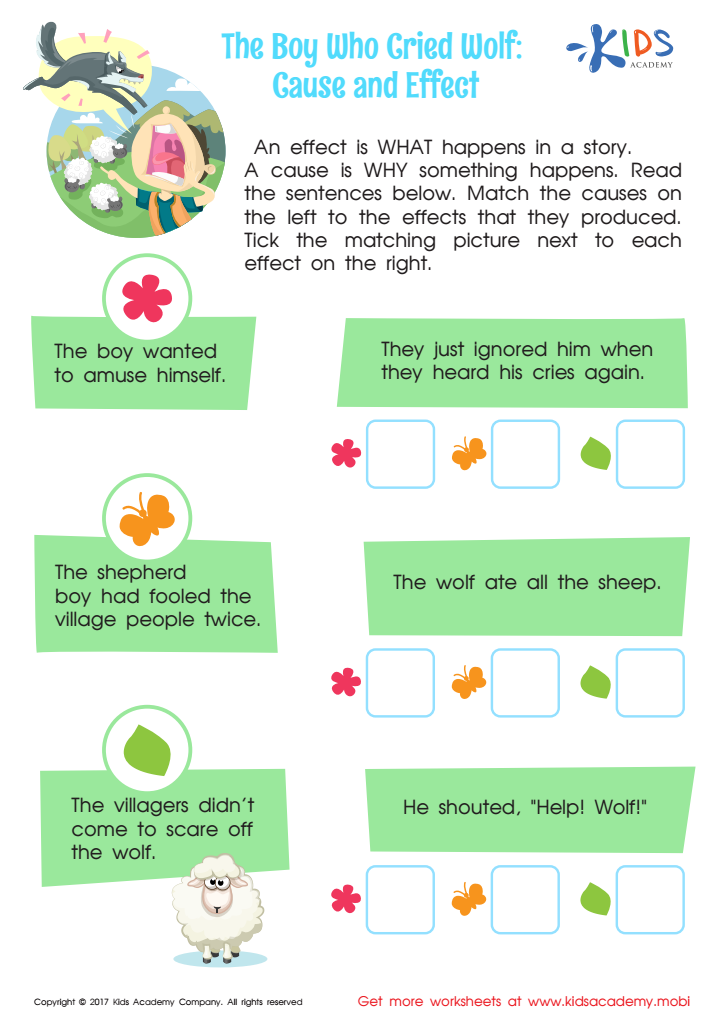

The Boy Who Cried Wolf: Cause and Effect Worksheet
Parents and teachers should prioritize developing comprehension skills through reading fiction for children aged 4-6 because it lays a crucial foundation for cognitive and emotional growth. Fictional stories stimulate imagination and creativity, enhancing a child's ability to think critically and solve problems. When children engage with stories, they learn to follow narratives, recognize plot structures, and understand character motivations, all of which contribute to better analytical skills.
Reading comprehension also plays a significant role in language development. Exposure to new vocabulary and varied sentence structures within fictional texts improves children’s linguistic abilities and communication skills. Moreover, as children grasp the nuances of storytelling, including theme and moral lessons, they develop empathy and a better understanding of emotions, contributing to their social and emotional development.
Additionally, comprehension skills foster a love for reading. When children enjoy and understand stories, they are more likely to develop a lifelong passion for reading, which is beneficial for their academic success. Early comprehension skills can enhance attention span, memory, and the ability to focus, all of which are critical not only in a school environment but in daily life as well. Therefore, nurturing comprehension skills through fiction is indispensable for holistic development at this formative age.
 Assign to My Students
Assign to My Students





.jpg)
.jpg)













